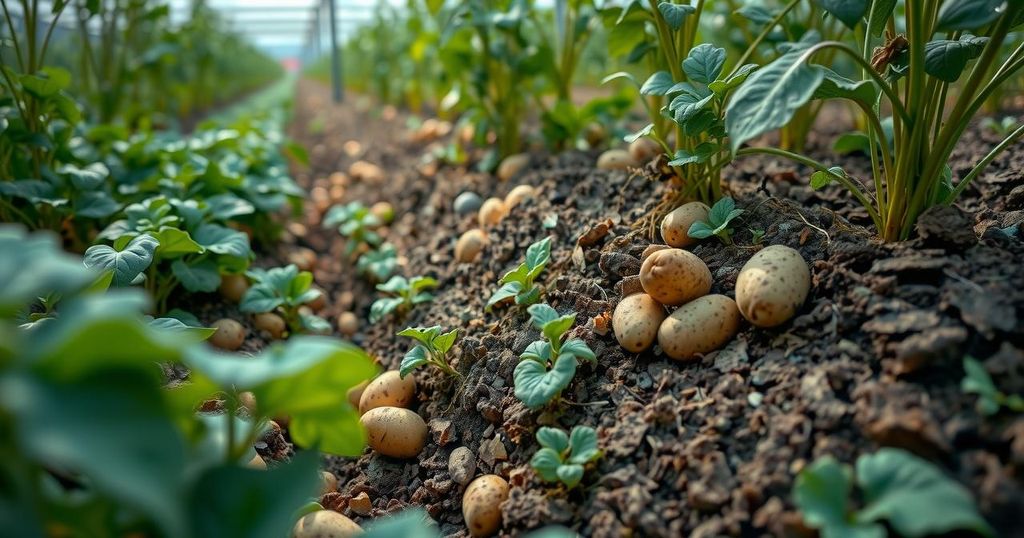Addressing Potato Yield Decline Amid Rising Temperatures in China
Dr. Li Jieping’s research reveals that climate change may severely reduce potato yields in China, the world’s largest producer. Potatoes grown in conditions simulating a 3-degree Celsius increase weigh significantly less than typical varieties, raising concerns over future food security. Farmers are urged to adapt their practices to mitigate these impacts, including altering planting times and seeking disease-resistant varieties.
In light of anticipated rising global temperatures, a research team led by molecular biologist Dr. Li Jieping in Beijing is conducting vital studies to understand how climate change may impact potato cultivation. Their findings reveal a concerning trend: in elevated temperatures of just three degrees Celsius above the current average, potato yields diminished by over 50%, resulting in tubers weighing only 136 grams, significantly smaller than China’s typical variety. China, as the world’s largest potato producer, accounts for over 22% of global output, making it crucial for international food security. The study, which spans three years, focuses on adaptation strategies that Chinese farmers may need to adopt in preparation for predicted climatic changes.
Dr. Jieping expressed his concerns regarding potential declines in food security, stating the necessity of proactive measures for farmers to adapt. Current projections suggest a dangerous temperature rise of 3.1 degrees Celsius above pre-industrial levels by 2100, according to a recent United Nations report. The researchers, in collaboration with the Chinese government, emphasize the urgency of modifying planting schedules, such as shifting to spring planting or relocating to higher altitudes to mitigate heat impact. The increased humidity during growing seasons further complicates matters, prompting farmers in regions like Inner Mongolia to expedite harvests ahead of anticipated rainfall, exacerbating the need for more resilient, higher-yield potato varieties.
The backdrop of this study illustrates the pressing issue of climate change, particularly concerning food production in pivotal agricultural regions. As climate models predict rising temperatures and unpredictable weather patterns, crops like potatoes, which are staples for many, face severe adversity. China, being the largest potato producer globally, plays a central role in this issue as its agricultural outputs heavily influence food security not only for itself but also for nations worldwide. The findings from Dr. Li Jieping’s research underscore the need for immediate adaptation strategies in the face of unavoidable climatic shifts, particularly maximized through rigorous agricultural research and innovation.
In conclusion, the research undertaken by Dr. Li Jieping and his team presents critical insights into how rising temperatures impact potato yields, significantly endangering food security in China and beyond. It is imperative for farmers to adapt their farming practices to address these challenges, whether through altering planting schedules or seeking out more resilient crop varieties. The collaboration between agricultural scientists and the government is essential to navigate the complexities posed by climate change effectively and sustainably.
Original Source: www.outlookbusiness.com




Post Comment